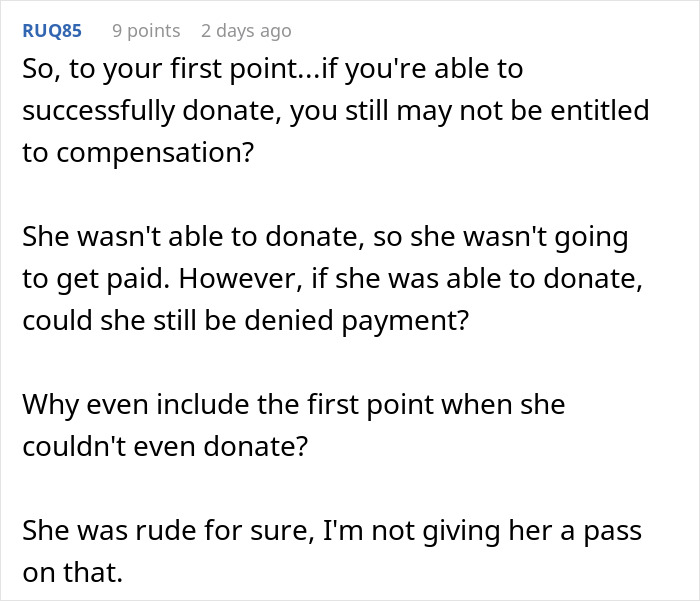Making a donation is typically a great thing to do. Whether you’re delivering boxes of non-perishables to the food bank or participating in your local blood drive, it feels great to give back to the community. Sometimes, you can even get paid for your contributions. But the check should be a bonus, rather than your sole motivation.
One woman who works at a plasma donation center recently posted a story on Reddit about one of the most entitled characters she’s encountered at work. So below, you’ll find all of the details, as well as some of the replies amused readers shared.
Donating plasma can be a great way to give back to your community
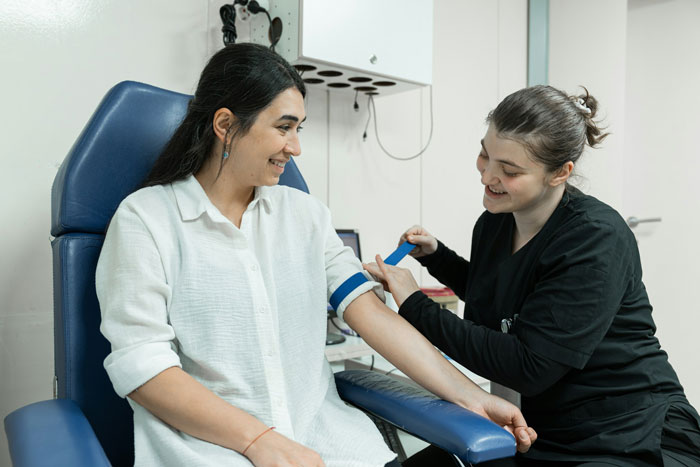
Image credits: Ahmed / Unsplash (not the actual photo)
But when one woman was deemed ineligible to donate, she refused to take no for an answer
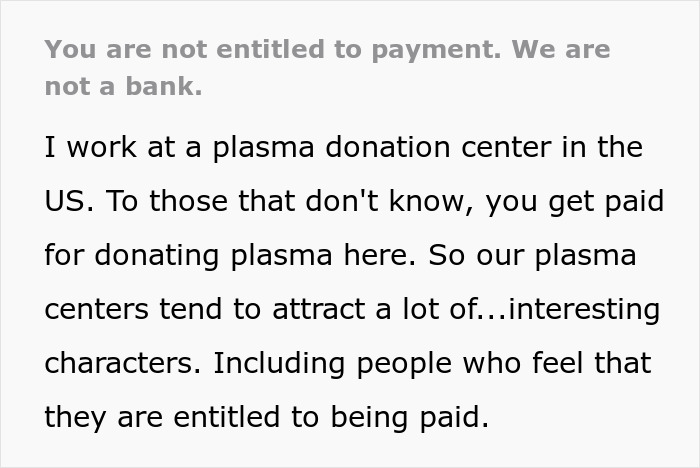
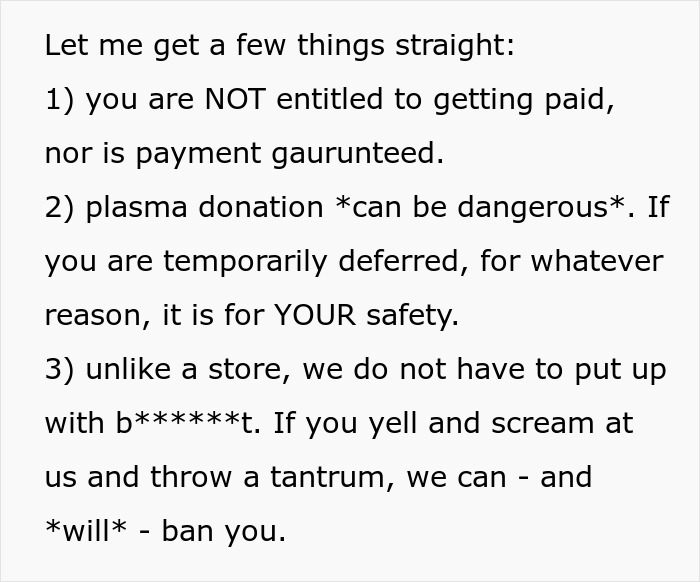

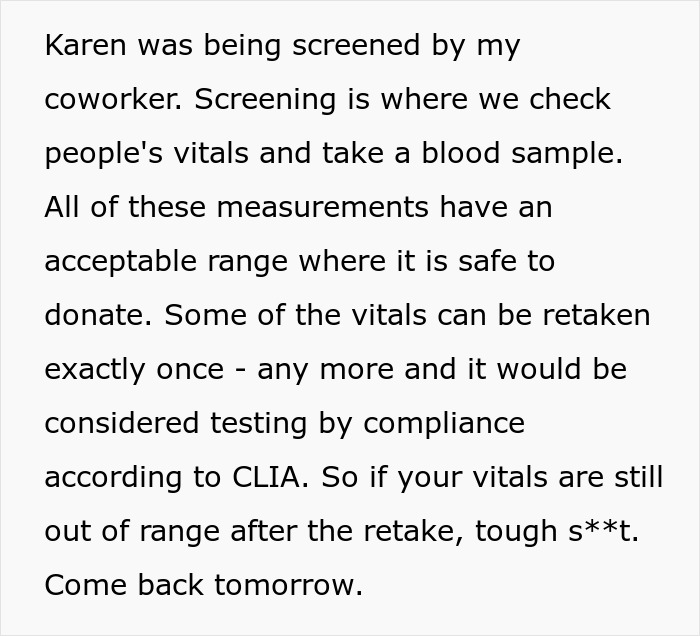

Image credits: Alex Green / Pexels (not the actual photo)
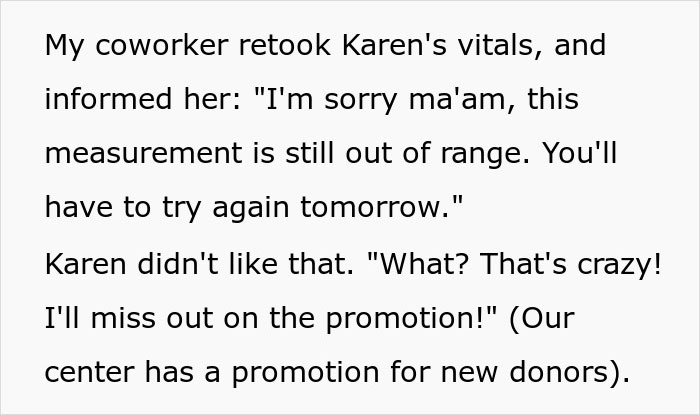
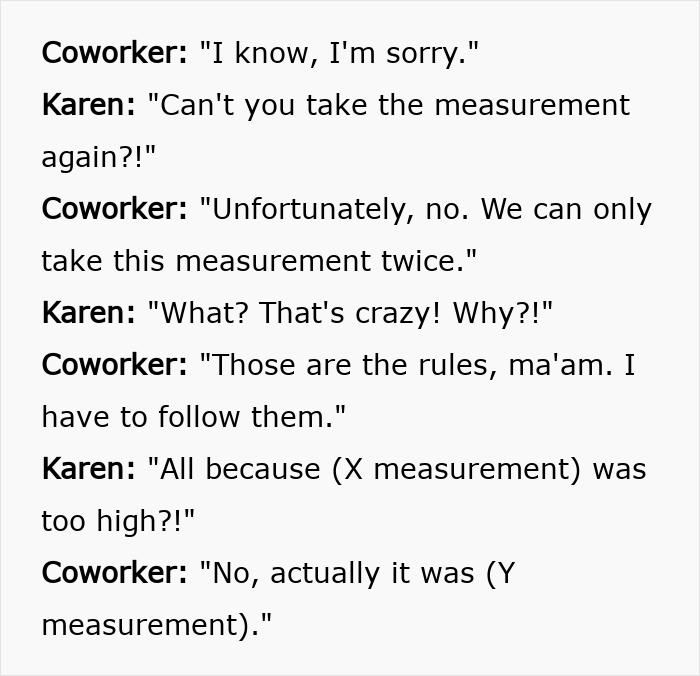
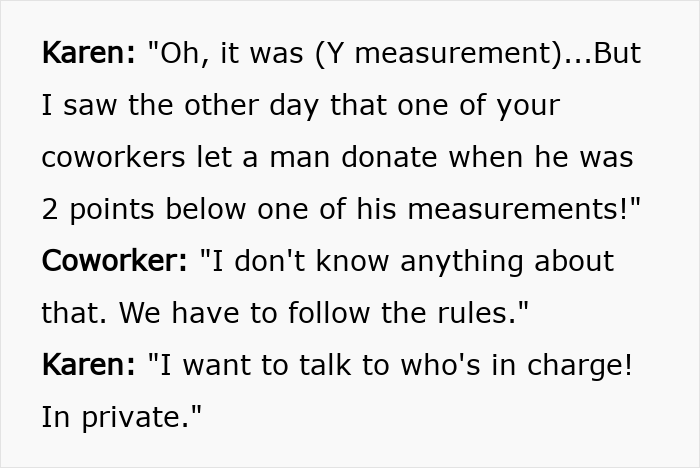

Image credits: Alex Green / Pexels (not the actual photo)

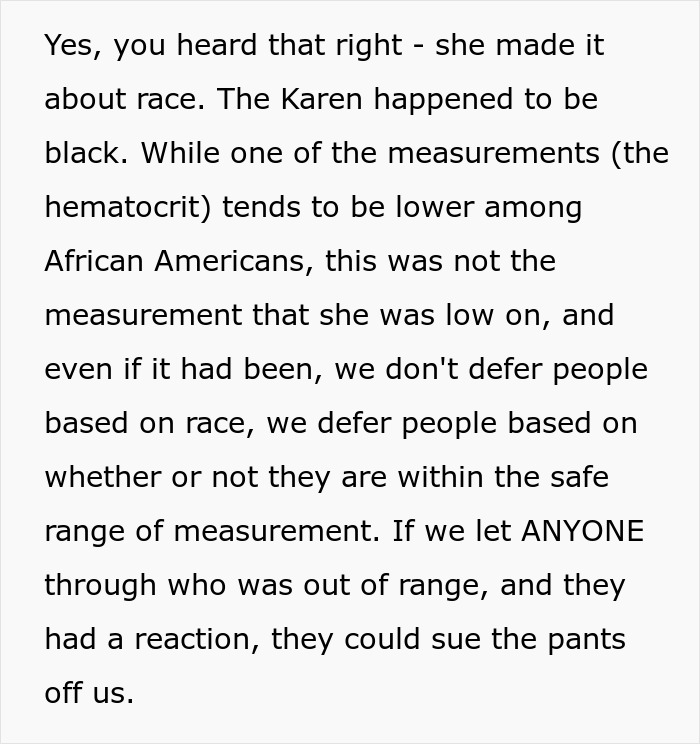


Image credits: MART PRODUCTION / Pexels (not the actual photo)
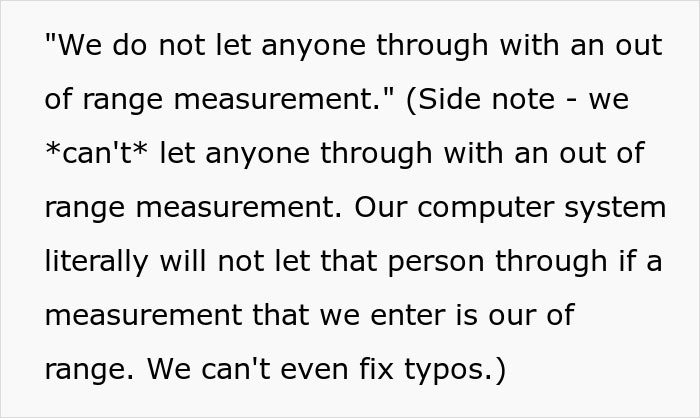


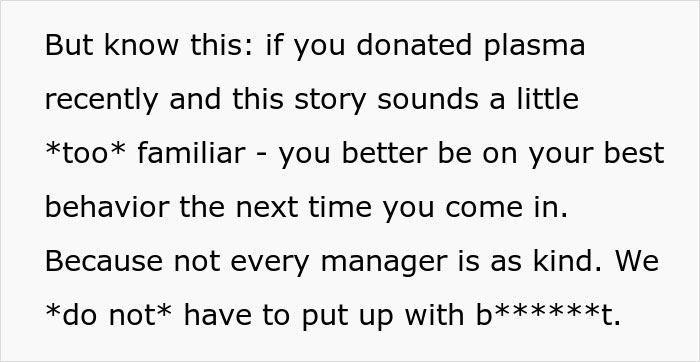

Image credits: Daniil Kondrashin / Pexels (not the actual photo)
Later, the author clarified several details about the situation



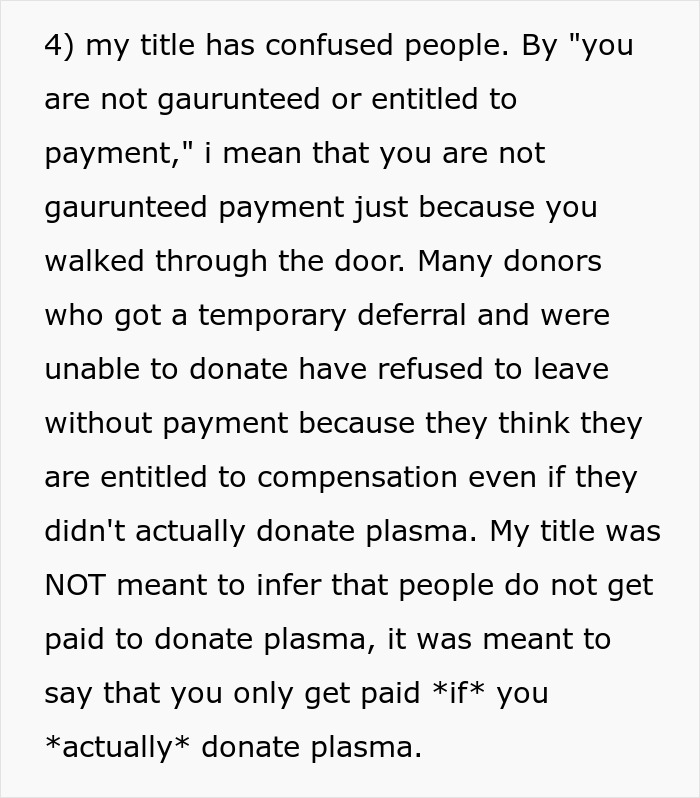
Image credits: Amazing_Excuse_3860
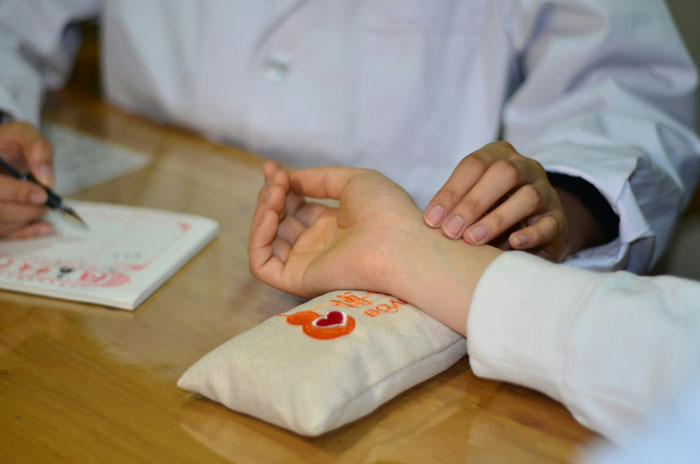
Image credits: kian zhang / Unsplash (not the actual photo)
Individuals must meet strict criteria in order to donate plasma
Donating plasma can save a person’s life. According to the U.S. Department of Health and Human Services, 130 plasma donations will treat someone with primary immunodeficiency for an entire year. And 1,200 donations will take care of an individual with hemophilia for a year. Plasma is also used for tetanus and rabies treatment, and pregnant women with Rh sensitization rely on it as well.
So who exactly is eligible to donate plasma? PlasmaSource notes on their site that donors must be between 18 and 69 years old and weigh at least 110 pounds. They must be in good physical health and test negative for any transmissible infectious diseases. It’s also crucial that they disclose all of their current medical conditions and share any medications they’re currently taking.
Donors must then complete a health screening and physical exam to check their blood pressure, pulse, temperature, protein levels and ensure they don’t have anemia. If a donor has recently given birth, they must be at least six months postpartum, and all donors must avoid taking aspirin for at least 48 hours prior to giving plasma.
On the morning that someone plans to donate plasma, WebMD recommends having a healthy breakfast and drinking lots of liquids but avoiding coffee, tea and alcohol. It’s best to avoid oily and greasy foods too, as these can impact the quality of a person’s plasma.
As for what donors can expect during the process, WebMD says the entire appointment should take approximately 90 minutes. This time will include registration, screening and the donation, which typically lasts for about 25 minutes. Afterwards, donors should have a snack and drink plenty of fluids, then take it easy for the rest of the day.
It’s also important to note that, in the United States, plasma can only be used after a donor gives at least twice. So donors must return to the same center within 6 months after their first donation to ensure that their plasma is safe.

Image credits: Getty Images / Unsplash (not the actual photo)
Some people question the ethics of paying donors to give plasma
Now, there’s no question that plasma centers are in need of donations. And they help hundreds of thousands of people each year. But not everyone supports the idea of paying donors for their plasma, as this can get into murky ethical territory.
CU Boulder Today reports that donors are often paid $50 per donation but can sometimes be paid up to $200 during times of shortages. And advertisements sometimes boast that donors can receive $800 a month for giving plasma a few times.
But Emily Gallagher, Assistant Professor of Finance at CU Boulder, argues that these donation centers sometimes prey on low-income individuals who are desperate for extra cash.
“The more payday lenders and pawn shops that are in a local area, the more likely that a plasma center will soon open there,” Gallagher says. “It probably is the case that when plasma centers are analyzing where to open, the prevalence of these types of alternative lenders is a good signal of a market to enter.”
She also worries about the health of those who donate frequently. “Nobody actually knows what the longer-term health costs of doing this twice per week might be,” Gallagher noted.
So if you plan on donating plasma, it’s probably a good idea to do so out of the kindness of your heart, rather than because you have no other way to pay rent on time.
We would love to hear your thoughts on this situation in the comments below, pandas. Then, you can find another Bored Panda article discussing similar issues right here.
Many readers chimed in with similar stories of their own, and the author joined in on the conversation

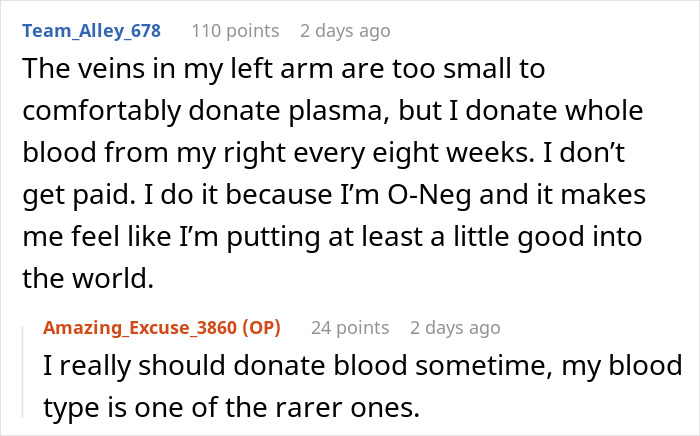
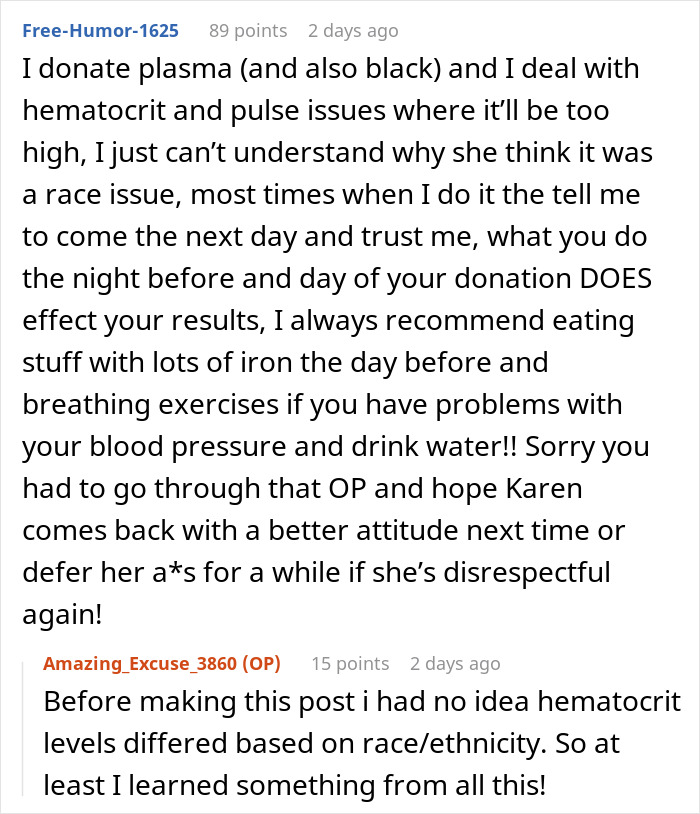
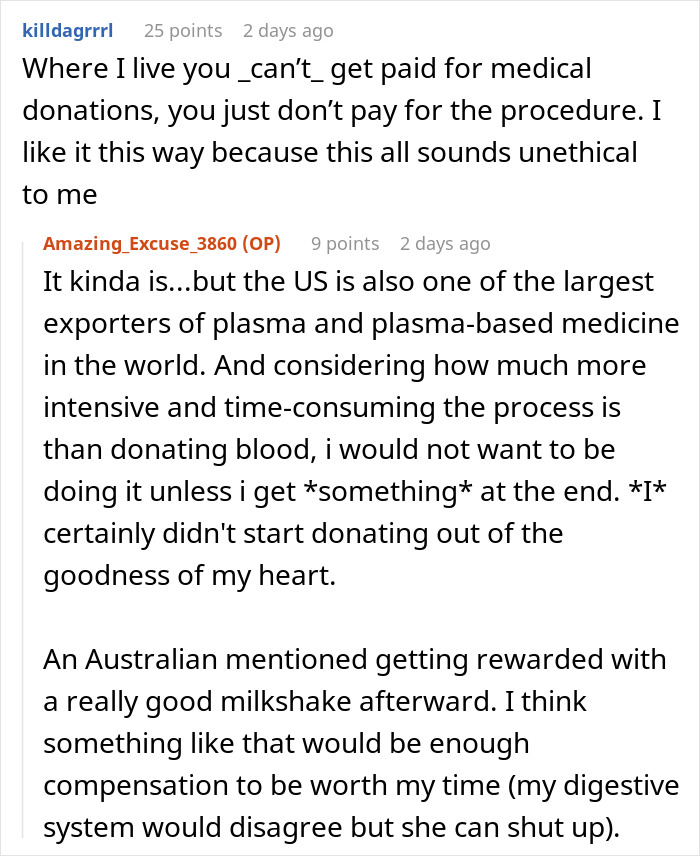
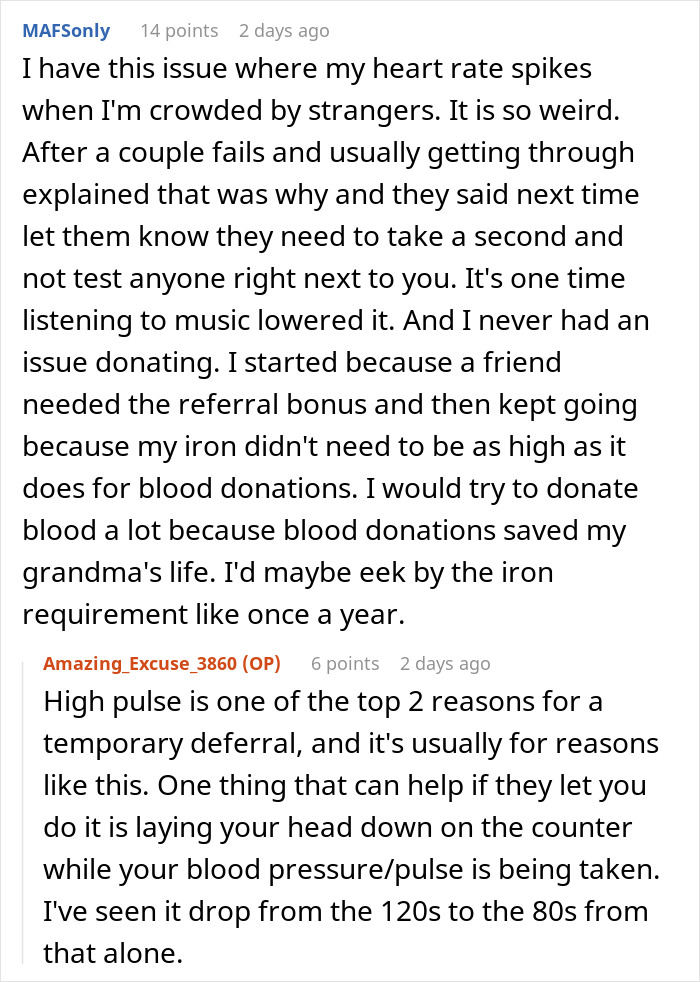
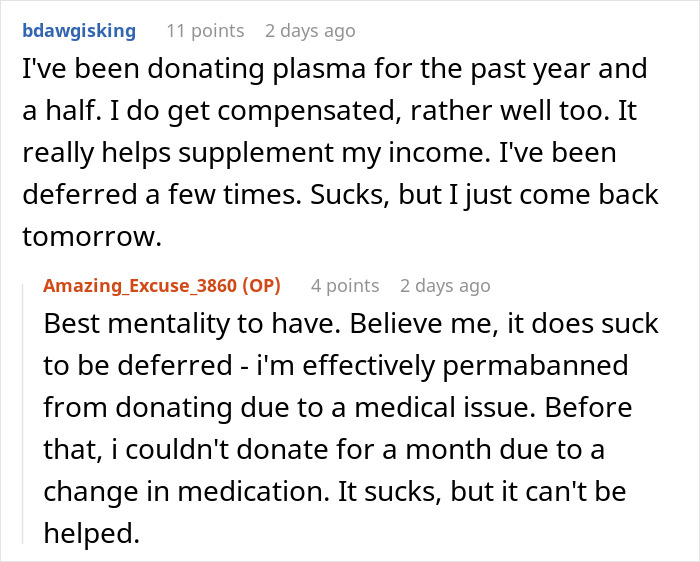





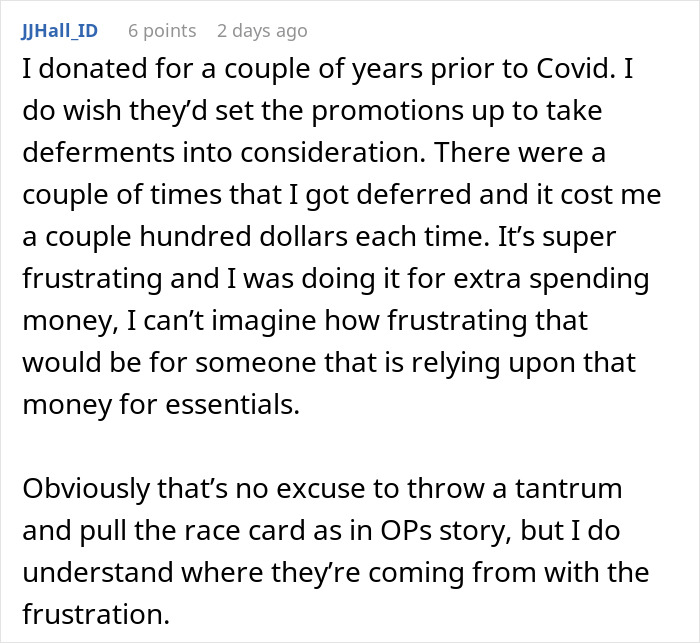

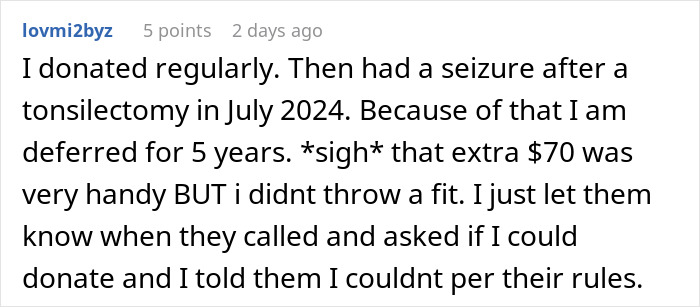
Some shared support for the employee as well


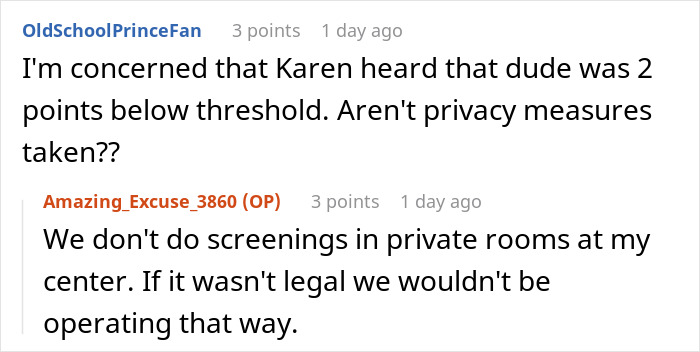



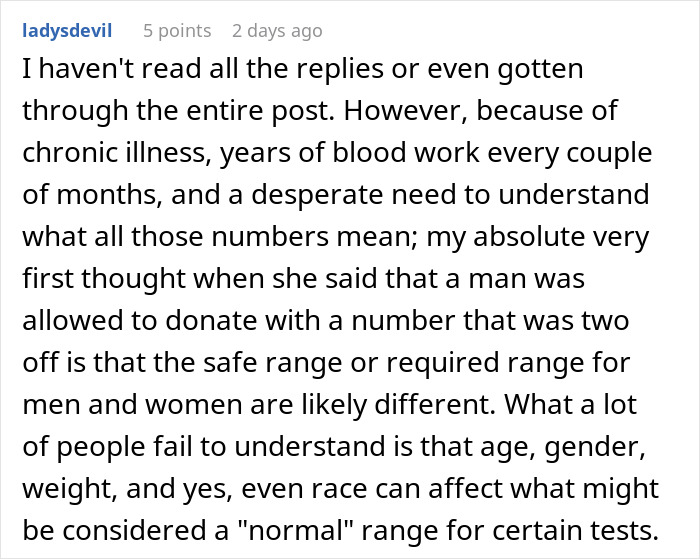
However, others thought that the author could have been more empathetic

